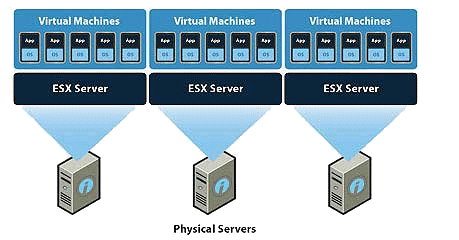 |
| Shhh. They don't actually 'exist'... |
Later, electricity was produced in large-scale facilities and was available for purchase off the grid. You didn't have to have infrastructure, and you only paid for what you needed. That is the nature of compute resources today. You specify a system - some processor cores, some memory, some storage, a network fabric - and you supply or specify an operating "image" - the OS and software stack you want to run. Then you tell your cloud provider you want five hundred of these virtual servers. When demand runs high, you easily add another thousand, and when you no longer need them, you shut them down, minimizing your operating overhead and producing profits that would have been impossible a few years ago.
This model has changed everything, and made computers much more powerful tools. When processing power requires no up-front capital investment, all of that capital can be shifted to software development. And as a result, we've seen huge advances in machine intelligence that have resulted in incredible technologies. At the high end, that means no more multi-million dollar super computers. Just hand over a credit card and spin up 50,000 cores on AWS, run them for 20 or 30 or 50 hours, get your results and shut them down. Anyone can do it, and they can do it NOW. At the low end you get Siri, and OK Google, and real-time navigation and traffic, at the high end genomics research and climate models on-demand.
But so much more is coming. The simple fact is you no longer need an actual computer. They are just another resource, and you can use one with the power (and cost) appropriate for the job. When you're surfing the web and and chatting on Facebook, you can use a tiny VM that costs virtually nothing. When you want to play a more demanding game or use a higher end piece of software, you seamlessly switch to a more powerful platform, and only pay for it while you use it. If you want to use a Mac for internet and a Windows PC for games, you don't have to buy the OS - the image comes provisioned. Instead of the computer you are using today, you merely need a box that connects you with your resource provider, and a display. Even your handheld and wearable devices gain access to much more powerful processors and you are never again constrained by what hardware platform you chose to buy, say, two years ago. You'll always have the latest version (or a specific older version if you prefer) and all the available security patches.
And once we are freed from the costs, complication and compromises of hardware purchases, access to the global digital infrastructure will truly be ubiquitous. Capacity will be whatever we need, whenever we need it, and even dedicated platforms like game consoles and Bitcoin miners can be virtualized.
THAT'S the next step, and it's coming to a screen near you.
...
All well & good until your iNternet connection goes down & you can't do (or play) anything.
ReplyDeleteUsed to be a concern, but think about two things. First, when was the last time your connection was down? How many hours were you down last year? On both your wire and your phone?
ReplyDeleteAnd then, what the hell would you do with a computer in 2016 that wasn't connected? Make a spreadsheet?